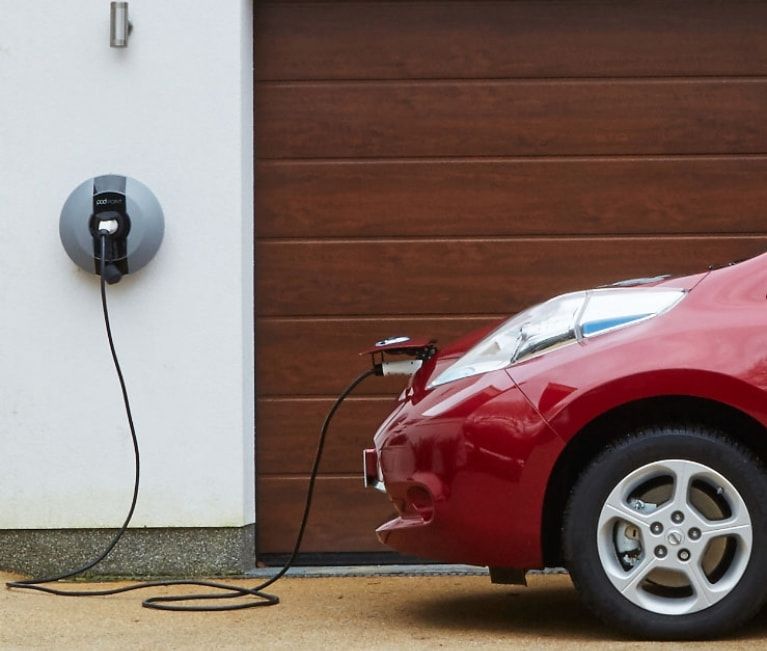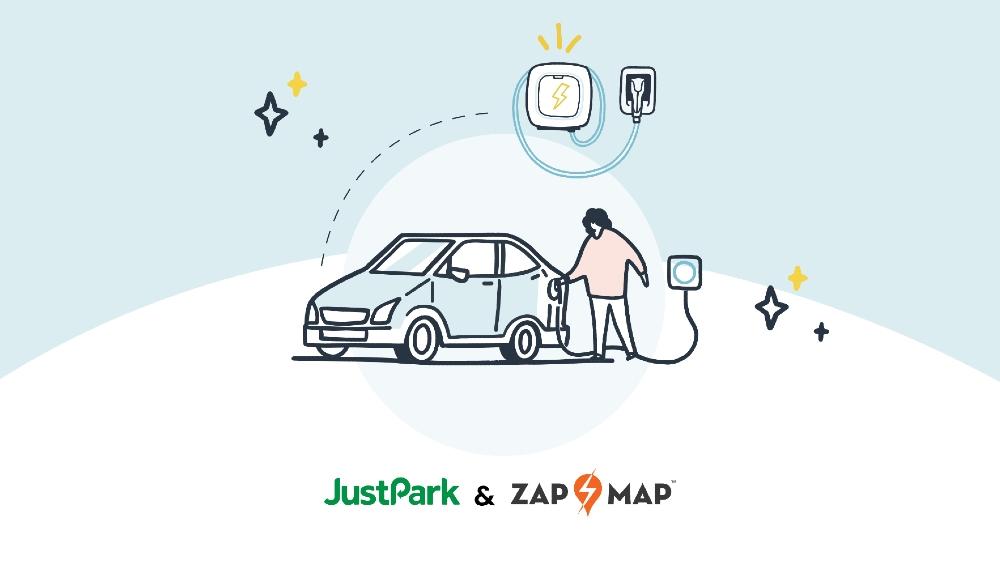Promoting Electric Vehicle Adoption by Improving Accessibility
How might computational modeling and renting residential chargers help to advance electric vehicle adoption on a large scale?
In this article, we will explore the latest research and industry collaborations that focus on promoting mass electric vehicle (EV) adoption. These alliances can help in the pursuit of a more sustainable, low-carbon future for all.
A home EV charger in use. Image used courtesy of EDF Energy
JustCharge Includes Residential EV Chargers
JustPark is a privately held company that provides smart parking services, helping match drivers with available parking spaces via the web or through a mobile application. The firm announced its recent partnership with Zap-Map, an app, and platform enabling EV drivers to search for charging points. Through this partnership, JustCharge, JustPark’s Community EV charging network has gone live. This means that a total of 1,600 JustCharge locations are available to book through Zap-Map, including residential charger points.
In an annual survey from Zap-Map (including 4,300 EV drivers), 20 percent of individuals said they would share their home charging point with other EV drivers.
Twenty percent of drivers would be willing to share their home charger, according to a Zap-Map survey. Image used courtesy of Zap-Map
The idea is that homeowners with an EV and their own charging point can act as a JustCharge host to their neighbors. Hosts can benefit from generating income from charging users to use their charging points, and the neighbors can get better access to charging if they lack one of their own. This may also encourage people to get an EV if charging is more accessible.
This could go hand in hand with the much-needed energy transition, as getting more EVs on the road can help reduce carbon emissions in line with the Paris Agreement.
The collaboration intends to provide greater accessibility for EV charging across a wider community of individuals lacking their own charging point or to those simply part of a growing EV-driving community.
Computational Tool Aids Access to Charging Stations
In another announcement, researchers from North Carolina State University (NCSU) revealed their latest research involving the development of a dynamic computational tool for improving user access to EV charging points/stations. The hope is to encourage more individuals to invest in EVs. The research was published in IEEE Transactions on Intelligent Transportation Systems.
Essentially, the researchers created an intricate computational model based on a game theory framework to address the questions of EV charger users while managing currently available charging infrastructure. The model addresses things including:
-
How long it would take an EV driver to reach a charging station
-
How much it would cost to use a charging station
-
Charging station waiting times
-
Potential charges for staying at a charging station longer than required
The computer model is intended to help EV drivers locate charging points to suit their needs and provide a dynamic system for charging station operators to meter out appropriate charging times for station users.
The modeling technique is dynamic in the way that input factors can change from day to day. Charging stations may have more or fewer charging points available, which can change whether an EV driver chooses to use a particular location.
While there is no real-world evidence to show the effectiveness of the research, simulations have suggested that the flexibility of charging station availability was an important predictor of which stations users would use. The next stage for the researchers is to test the modeling technique in a real-world setting.








